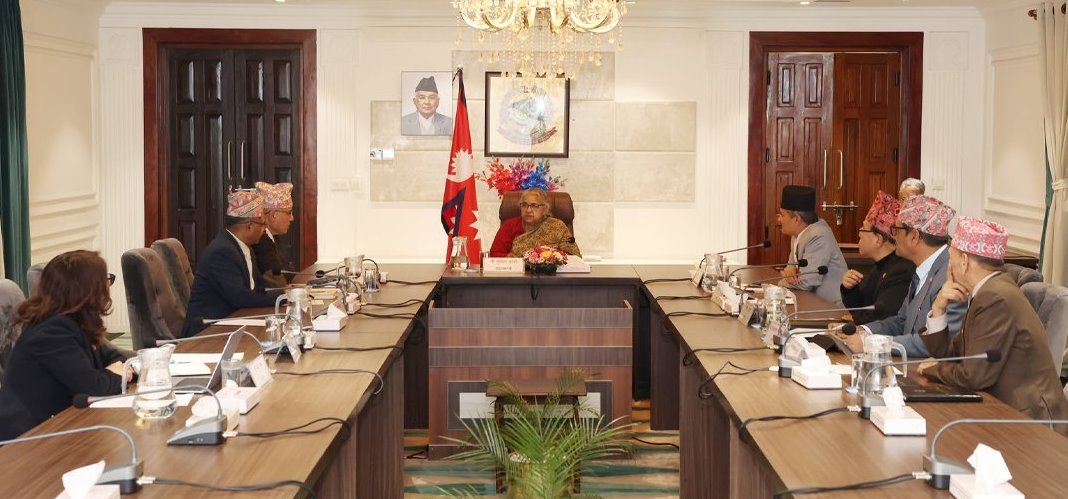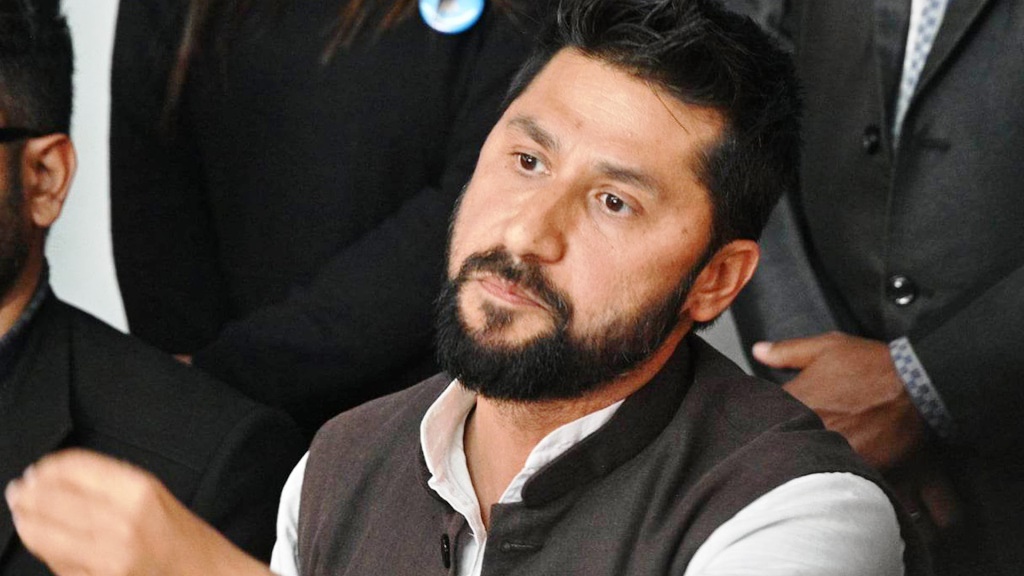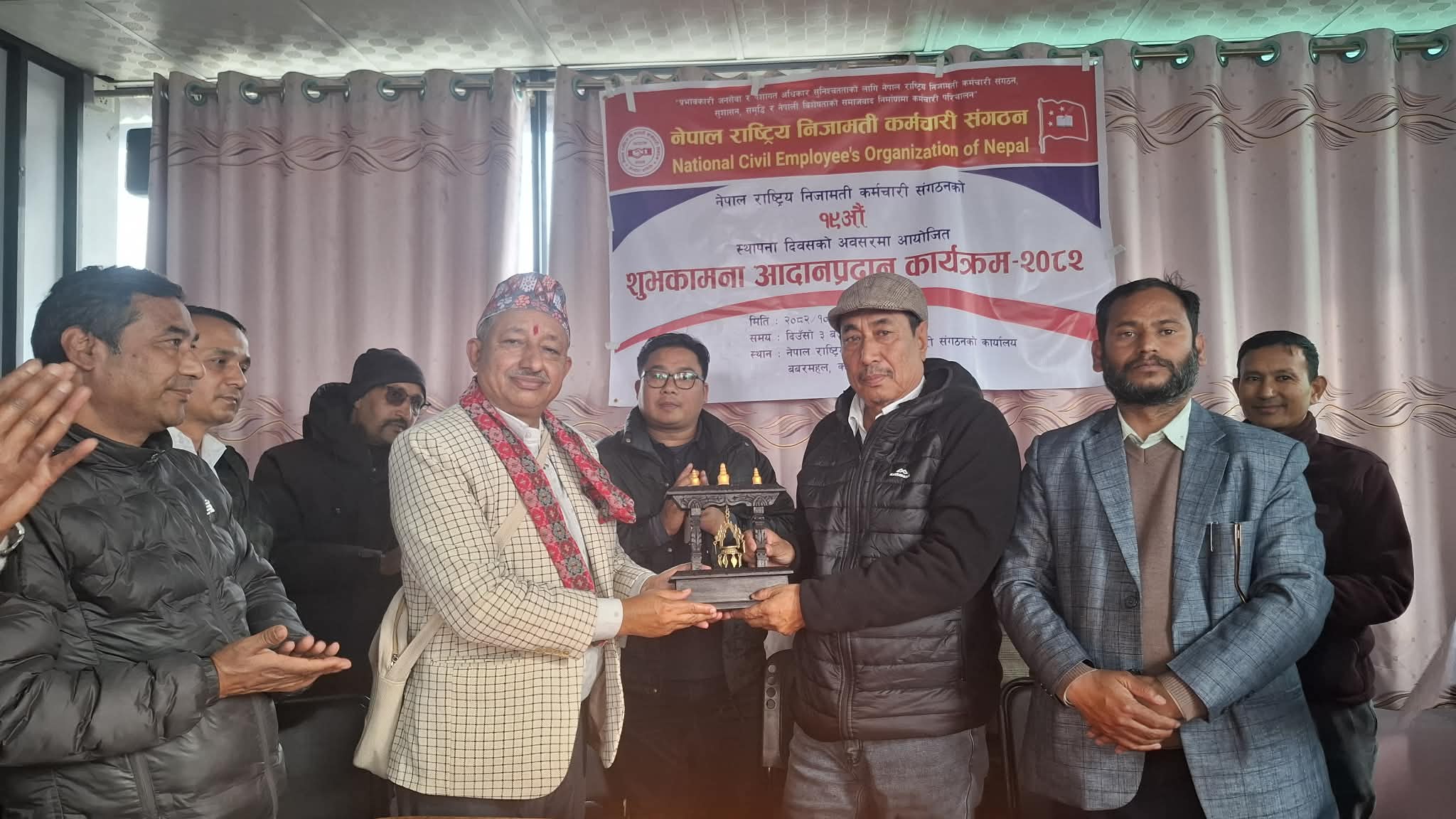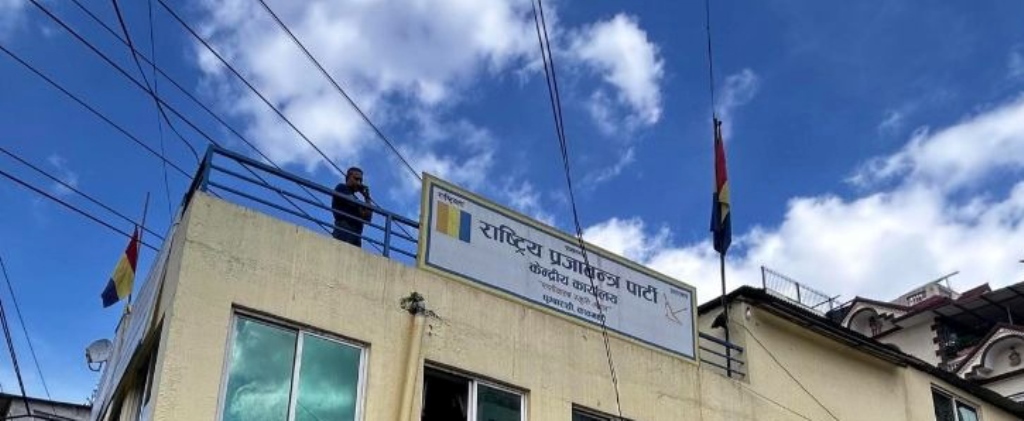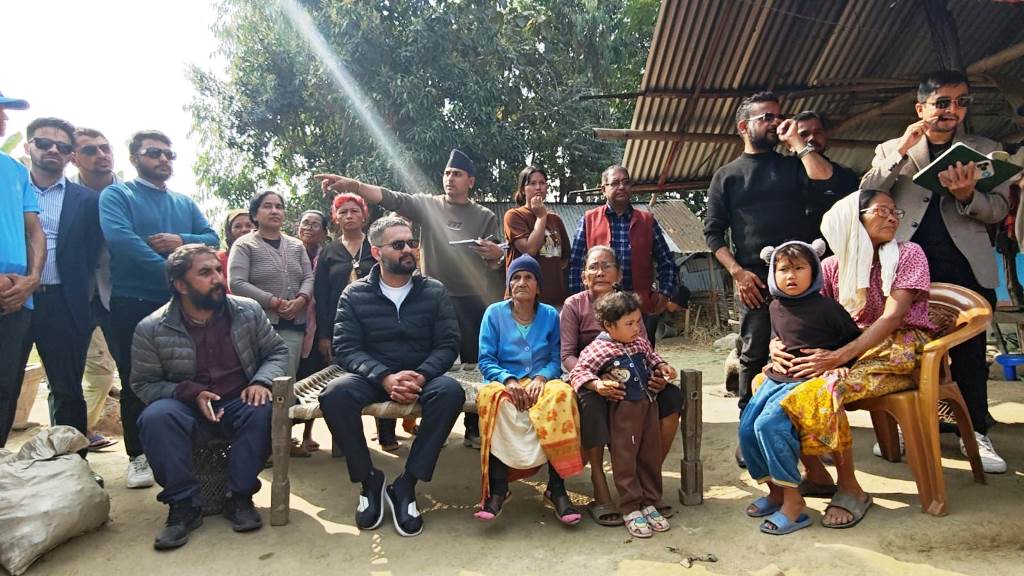Kathmandu, Sept 17, Sharachchandra Bhandary The 74th General Assembly of the United Nations Organization is taking place at the UN Headquarters in the U.S. mega polis of New York from today. The main agenda of the UNGA’s discussions this year is – Galvanizing Multilateral Efforts for Poverty Eradication, Quality Education, Climate Action and Inclusion.
High level meetings will take place under the General Assembly for a week. These meetings will be on the global health concern, high-level political forum for sustainable development, investment for development, addressing the priorities of developing and small island nations and a review of their progress.
Debate will also be held on the periodic evaluation of the Millennium Development Goals, investment for development, climate change, and the concerns of under-developed countries, human rights, disarmament, international peace and the global security situation. A delegation headed by Minister for Foreign Affairs, Pradeep Kumar Gyawali is leaving for New York on September 21 to participate in the UNGA.
The 12-member delegation includes Deputy Prime Minister and Minister for Health and Population, Upendra Yadav, Minister for Forests and Environment Shakti Bahadur Basnet, members of the National Planning Commission and the Foreign Secretary.
The members of the Nepalese delegation will take part in the high-level meetings. Minister Gyawali is scheduled to address the 74th UNGA on September 30. Nepal will voice its aspiration in the General Assembly wishing for the multilateralism which is at the heart of the United Nations becomes more effective, that the world system is based on laws and process, that the voices of the smaller countries are heard appropriately and that the world order is inclusive, judicious and responsible.
Nepal is of the belief that durable peace is impossible until poverty, inequality and discrimination continues to exist in the world. It is of the stance that disputes should be resolved through peaceful means. Nepal will urge the international community for more meaningful collaboration and promotion of partnership to face the common challenges like climate change, terrorism, extremism, human trafficking, inter-country crime and refugee problem among others, with determination.
Nepal will reiterate its aspiration to upgrading the country from the status of least developed country at the soonest and transforming itself into a country with medium income level by attaining the Sustainable Development Goals by 2030. It will also urge the developed countries to fulfil the commitment that they have made in international forums to provide 0.15 per cent of their total national income as assistance to the least developed, developing and land-locked countries.
Like in every General Assembly sessions, issues of global concern as international peace and security, economic condition, sustainable development, human rights, humanitarian affairs, natural disasters, international cooperation, international law, disarmament and terrorism will also be discussed in the preliminary meetings of the 74th General Assembly.
Thereafter, intensive debate and discussions will be held in the six thematic committees of the General Assembly on disarmament and international security, economic and financial situation, social, humanitarian and cultural state, special political and post-colonial freedom, and the administrative, budget-related and legal provisions of the U.N. Nepal, which took membership of the United Nations on December 14, 1955, has been actively participating in the U.N. General Assembly since the 11 General assembly in 1956.
It has been contributing to the UN Peace Force since 1958 and figures as the fifth largest country in terms of mobilization of peace keeping force. The global community has been openly praising Nepal for its cooperation by means of military diplomacy and in establishing world peace.
The Nepalese peace keeping forces currently serving in 15 places of the world are taken as epitome of glory and valour. Nepal and the Nepalese have not forgotten the tragic incidents in which 75 personnel attained martyrdom in line of duty in the 61 years period since Nepal started participating in the arduous task of peace keeping at the call of the United Nations.
The objective of Nepal’s foreign policy is to provide support in keeping peace in the world. As such, the Nepalese peacekeeping forces are mobilized the moment the UN requests and they are mobilized most difficult and risky areas. Nepal will once again raise in the world body that Nepal’s this contribution should be recognized and it should be given a leadership position in the UN Peacekeeping Bodies.
It will also draw the attention of the bodies concerned on matters like the supply of urgently essential equipment, aviation support and payment for equipment. Besides Nepal, other countries which have been contributing to the UN Peacekeeping Force will be discussing the effectiveness, capacity and defence responsibility of their troops mobilized in peacekeeping missions, the UN Security Council’s mandate and resource availability, issues of sexual misconduct and exploitation, security of all persons mobilized in the work area and other required assistance, the role and rationale of the political mission and the looming global financial crisis and its effect on the United Nations.
History has recorded that Nepal has been playing an effective role in the U.N. since the 1960s. Nepal’s then permanent representative to the U.N. Hrishikesh Shah had led the task force formed by the UN to investigate the death in a plane crash of UN Secretary General Dag Hammarskjold on 18 September 1961. Nepal has been elected the temporary member of the UN Security Council.
Nepal has become the Vice-Chair of the General Assembly on ten occasions and worked in more than 30 UN high committees and its specialized bodies including as a member of the Economic and Social Council for two terms. Similarly, Nepal has become the member of the UN Administrative and Budgetary Advisory Committee, the executive board member of the UNESCO and UNICEF and vice-chair of the Least Developed Countries.
Presently, Nepal is a member on nine committees including the Committee on Ending All Forms of Discrimination against Women (CEDAW), as joint member of the ILO Governing Board, the Science and Technology Commission, the Human Rights Committee and Peace Building Commission.
The United Nations was established on October 24, 1945, with the goal of promoting friendship and brotherhood, building equitable society and promoting friendly relations and fostering respect among all countries of the world and respecting equal rights, and the people’s right to self-determination by maintaining peace and security in the world. It is playing a leadership role in mitigating large scale conflicts, epidemics and tensions throughout the world. United Nations, which has been facing challenges like not only establishing peace in conflict-ridden territories and ending the ethnic and religious strife but also the 21st century terrorism, climate change, disarmament, protection of human rights, poverty reduction and helping in attaining Sustainable Development Goals, has not been free from allegations of working under the influence of the powerful countries and the regional organizations like the North Atlantic Treaty Organization (NATO).
As per its Charter, the UN’s main objectives include maintaining international peace and security, fostering friendly relations among the nations, addressing international problems of the economic, social, cultural and humanitarian in nature, securing international support for promotion of fundamental human rights and freedom for all and securing all these common goals.
Billions of people have immense trust, respect and confidence in this world body. The U.N. has played an exemplary role in protecting the future generation from the scourge of war, in providing assistance to millions displaced from conflict, in providing a helping hand for managing food, clothes and shelter to the underprivileged people and children, in fighting against new diseases, in providing safe drinking water and sanitation and in increasing access of the poor to education and health.
Nepal has been expressing its stance and opinion on contemporary international issues in course of the General Assembly meeting. Nepal has its clear stand on the Syrian conflict, the Palestinian issue, the U.S. – Cuba relations, Iran’s nuclear programme and the Korean peninsula.
Nepal has been backing the ongoing efforts made by the Arab League in collaboration with the Syrian political parties for resolving the conflict. It has been urging the sides concerned to seek solution to the conflict through dialogue. Nepal is equally concerned about the peace and stability in West Asia and has been supporting the U.N.
Draft Proposal which stipulates that both neighbours Palestinians and Israelis should live within internationally recognized and secure borders. It is firm on the principle that cordial relations should subsist between America and Cuba with the conviction that this would not only contribute to regional but also to international peace and unity.
Likewise, Nepal has welcomed and supported the agreement between all the five members of the U.N. Security Council, including Germany, and Iran regarding the latter’s nuclear programme. It is for the complete and all-time disarmament of weapons of mass destruction. Nepal has been stressing on the peaceful resolution of the Korean peninsula issue, for all sides to abide by the Security Council resolution and for quickly restarting the six-side talks.
Nepal opposes the nuclear tests carried out by North Korea and has welcomed the summit talks in June between U.S. President Donald Trump and North Korean leader Kim Jong Un as well as the dialogue between the two leaders that took place after the summit talks.



